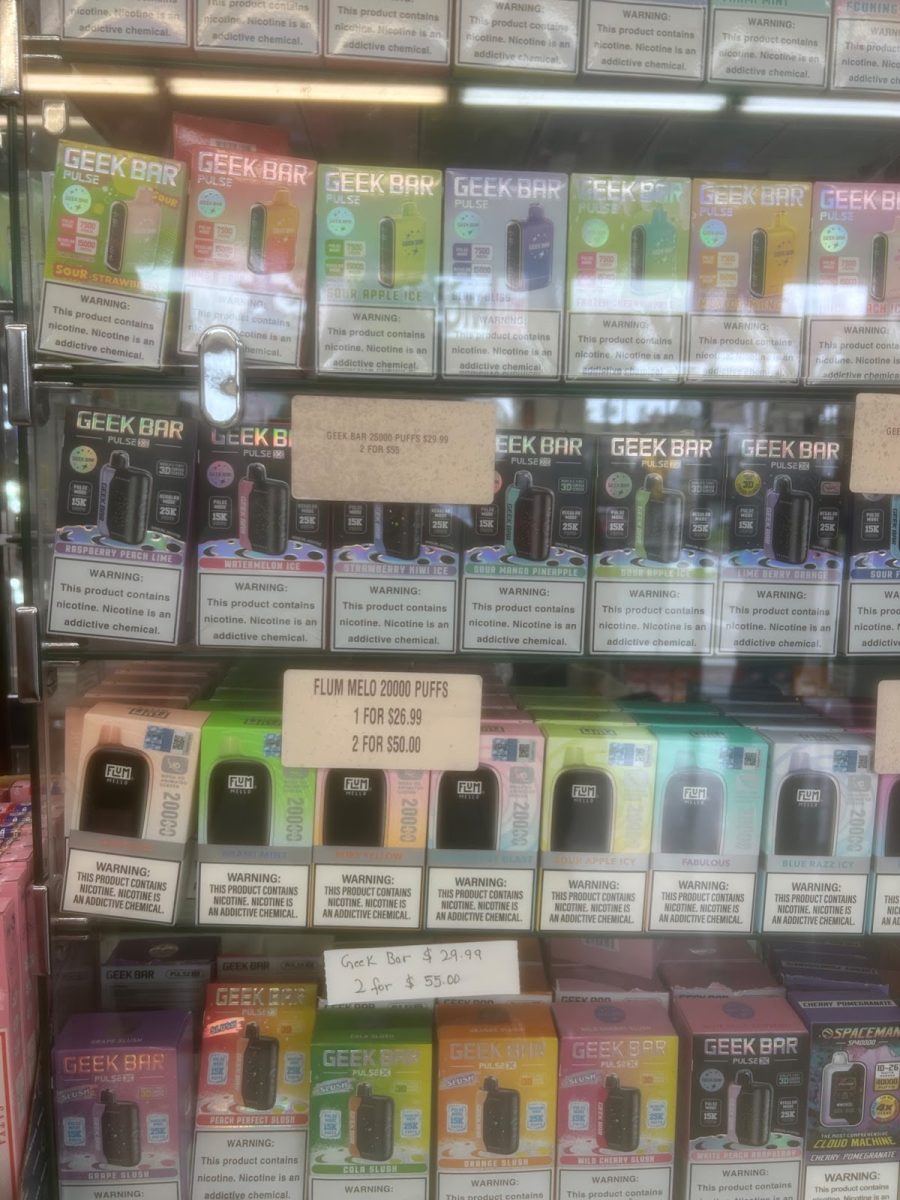
Every Saturday for the past several weeks, protesters have lined the street in front of the Tesla dealership in Portland, carrying signs reading “Tesla funds fascism,” “Tax the rich,” “Sell today,” and “Stop buying Teslas.” Elon Musk, co-founder and CEO of the electric vehicle company Tesla, has been serving as senior advisor to President Donald Trump, which has recently prompted controversy. These protests, which have occurred throughout the United States, have found their way to Portland’s Tesla dealership on 4330 S Macadam Ave.
The growing movement of dissent against Musk particularly pertains to his work leading the Department of Government Efficiency (DOGE), Trump’s new initiative to cut federal spending. In the months since its creation, DOGE has pulled funding from medical research, foreign food aid, and federal employment. Additionally, many have voiced concerns about Musk’s access to Americans’ data and the lack of clarity around why personal information is necessary for the initiative. Such tumult surrounding Musk has manifested in the perspectives of protests across the nation. An anonymous protester outside the Portland dealership explains that they “think [Musk is] the worst of the billionaires and the most vulnerable to a boycott.”
These protests have caused many Tesla owners to fear that their vehicles will be vandalized, as action against the vehicles, chargers, and dealerships has been occurring. Though these protests are in response to Musk’s actions, many Tesla owners purchased their vehicles based on financial and environmental benefits, not because they aligned with Musk. Mike Franz, a Tesla owner from Bend, OR, bought his vehicle around two years ago. At the time, he saw Musk as an “eccentric techie” who was “motivated to get more electric cars in the world.” Franz purchased the car with climate change and his carbon footprint in mind. Portlander Lee Gordon similarly chose to buy a Tesla a few years ago because it was an electric vehicle. The financial benefits of purchasing a Tesla were another contributing factor. “There was this big tax deduction … built into the price [of the car],” explains Gordon. “They took $7,500 off the price, and for a comparable car of that size, it was much cheaper.”
The Tesla Takedown movement, which has been involved in organizing regular demonstrations at Tesla dealerships and showrooms across the country, defines itself as “a peaceful protest movement” that “oppose[s] violence, vandalism, and destruction of property,” as per their website. Despite this, the popularization of anti-Tesla action following Musk’s recent controversy has led Franz and Gordon to quickly become more conscious of their vehicles. The group closely associates Musk’s actions with Tesla vehicles, stating on their website, “Musk is destroying democracy around the world, and he’s using the fortune he built at Tesla to do it.” Not all current Tesla protests are organized by or associated with Tesla Takedown.
Since January 2025, when Trump was inaugurated, Tesla stocks have been declining. Sales of the Cybertruck — Tesla’s battery-electric full-size pickup that came out in 2023 — have also taken a hit. According to Forbes, the past quarterly figure for the electric vehicle was less than half of what it sold in either the third or fourth quarter of 2024. Many who oppose Musk want Tesla sales and stock value to decrease; as one protester says, “We want to raise awareness to what Elon Musk is doing and how he has no right to do it, and we want to destroy his company.”
While some acts of protest have been peaceful, others have directly impacted Tesla owners. Franz experienced an incident while his car was parked at an electric charging station on Mt. Hood when someone tore the charger out of his car. He says he was “kind of baffled by” the situation, which, after reviewing the footage from the car’s built-in recording system, he believed to be an individual attempting to vandalize the charging station.
While no damage occurred to the vehicle itself, Franz was left confused, unsure of what the act was trying to achieve. “I don’t even know this dude’s politics,” he states, explaining that he suspects the act was either against electric vehicles or Musk. He argues that peaceful group actions such as boycotting Tesla or demonstrating at a dealership make “a lot more of an impact.”
Similarly, Gordon questions what those who vandalize Teslas are truly achieving, stating, “You’re not going to win that person over, and you’re not hurting Elon Musk, because the money already went to Elon Musk. If anything, you might even help him, because they might have to take it to a Tesla dealership to get the windows fixed, and only a Tesla repair can fix that, … so it kind of has the opposite effect.” Gordon views the vandalism of Teslas as counterproductive. While he believes that Musk is “an evil guy who’s racist, antisemitic, fascist, [and] helping to destroy democracy,” he asks vandals, “Are you really helping anything except for maybe pissing off the owner, who could very well be an ally of yours?” Juniper Goldberg, a Franklin senior whose family owns a Tesla, agrees, saying, “I understand why people want to protest the company, but vandalizing the cars is a horrible way to go about it. Most Tesla owners agree that Elon Musk sucks, and if their car gets vandalized, they have to take it to Tesla for maintenance. That just puts more money into Musk’s pockets.”
The conflict between the ideologies of Tesla owners and Musk is further demonstrated in the safety precautions many owners take to avoid vandalism. One prevalent strategy in Portland is adorning the car with bumper stickers. Common stickers read “Anti-Elon Tesla club,” “Here for zero emissions, not Elon,” and “I bought this before Elon went crazy.” Gordon, who purchased one such sticker, explains, “We want to protect the car, but also we want to be identified as people who are pro-democracy.”
Franz explains that his family has been more aware and even ashamed of their Tesla recently, and “don’t want to be seen in it.” When they participated in a “Hands Off!” protest, a nationwide demonstration against Trump and Musk, they did not drive the car and ended up walking, per his family’s request.
According to Pew Research Center, 54% of United States adults have an unfavorable view of Musk. Further, Pew Research Center also reports that approximately three in 10 Americans say they would seriously consider purchasing an electric vehicle, with more Democrats or Democratic-leaning constituents interested in purchasing one than Republicans or Republican-leaning constituents. “I would say most Tesla owners skew liberal, [and] bought their cars before [Musk’s involvement in the government began],” says Gordon. “I think it’s counterproductive when you trash a Tesla without knowing who owns it.” Gordon, Goldberg, and Franz all theorize that, at least locally, many Tesla owners purchased the vehicle motivated by climate change.
Protesters interviewed outside the Portland Tesla dealership agree. One explains that they believe “it gets complicated with existing Tesla owners” and that individuals should be encouraged “not to buy new Teslas.” Some individuals encourage owners to sell their vehicles if possible. However, as one protester conceded, “It’s an economic issue for so many people” who may not agree with Musk’s actions, but cannot necessarily sell their car. Franz corroborates this notion, stating that if he were to sell his car, he would “probably lose tens of thousands of dollars.”
Gordon believes there are better ways to protest and that the best form of activism occurs when two opposing sides work together. “You have to team up with people that you might not agree with, that might be too left-wing for you. We need more people out in the streets to demonstrate, and vandalism is kind of like an army of one or maybe three people,” he explains.
If controversy continues to surround Musk’s actions in the government, protests against Tesla, as well as potential vandalism to Tesla vehicles, may continue as well. Many of those who protest at Tesla dealerships do so regularly, for hours at a time — a display of their commitment to their cause. As one explains, “We feel that we need to do something, so we do this.”

































